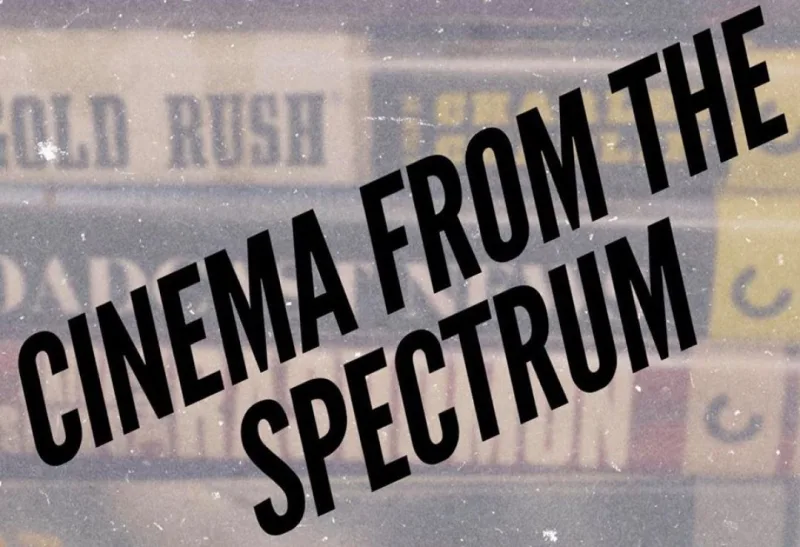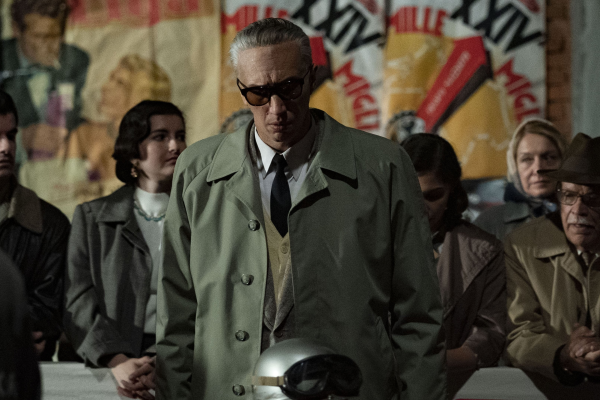✯✯✯✯✯
Perhaps it’s a tad snooty on my end to say, but I’m amazed that few people seem to really “get” Starship Troopers in this day and age. Although it’s a wonderful sight to see that it has acquired a cult following in more recent years, I would only have imagined that Paul Verhoeven’s name being attached to adapt a novel written by Robert Heinlein – an author I’ve disliked for the authoritarian and borderline fascistic readings into his own text was already in for yet another bite. And knowing where the satire present in RoboCop and Total Recall had leaned, the idea had only hit me as cheeky – and admittedly it was something that even went over my head the first time I saw Starship Troopers. Over repeated viewings, however, the cleverness of Starship Troopers became even clearer – working within the same in-your-face charm that made RoboCop so brilliant.

Set inside of a future where one’s military service is a fatal part of one’s own citizenship, Starship Troopers puts centers around the exploits of protagonist Johnny Rico as he starts serving for his own society – leading an entire army against a species of arachnids often referred to as “the bugs.” Being adapted from a novel by Robert Heinlein, one can only imagine that his own authoritarian allegories would be present but Paul Verhoeven toys with such in order to turn a jingoistic piece of fiction into a delightful satire. On the outside what we see looks like an action-packed adventure about humans trying to protect themselves from an army of bugs, but deep down it’s also much angrier politically and that is where all the fun of Starship Troopers only begins.
If there was anything to take from RoboCop it was a film whose criticisms of the capitalistic world around itself were everywhere to be seen from the commercials to the development of the city, as well as its general treatment of criminals. The case with Starship Troopers is not very much different for it is a film that shouts in front of your face how much it dislikes the way militaries are run especially within its own nation especially from the obvious nods to Nazi propaganda. Verhoeven isn’t subtle about his dislike of what Heinlein had promoted inside of his own novel, but there’s no need for him to be. As a matter of fact it works beautifully even in this day and age because of the direction the political climate seems to be driving the common citizen, to a degree of nihilism that they don’t even realize because of the images they’ve conformed themselves to seeing: almost like Paul Verhoeven is jabbing at what people expected of his product.
Common critiques of Starship Troopers seem to pertain towards spotty CGI or the terrible acting, but if that is what is seen then it only helps give the film the appearance of a propaganda film from the future. The cast are comprised of a number of terrible actors whether it be Casper Van Dien or Denise Richards and mixed together with class like Clancy Brown and Michael Ironside, emphasizing just what propaganda’s purpose is as a whole: present as a means of selling an idea for spectators to come forward. The whole film builds an entire universe, and feels like it is coming from such for us to watch like it was sent from said universe, painting the lives of the militaristic forces as nothing but joyful and glee, it only feels fitting enough that their own purposes and acting abilities are jabbed at and it only feels even cheekier on Paul Verhoeven’s end.
If one were looking for an action spectacle and nothing more, Starship Troopers won’t disappoint on the count of its entertaining effects and outrageous violence but in the oddest manners it only ends up reinforcing its own cleverness here because if this is all that one sees, then a viewer has indeed bought into the propaganda that Starship Troopers has designed itself to “sell.” It sells a shallow idea that humans are good and aliens are bad, but because of the glamor present within the image, the exciting nature of the action sequences even becomes deceiving in the most clever manner. Even if the special effects do appear somewhat dodgy, it doesn’t take from the glory that Paul Verhoeven is revelling within through the ultra-violent nature typical of a film under his direction: for the fact we recognize everything as ridiculous only shows something even more intelligent and cynical once again in typical Verhoeven fashion.
I’m amazed that so much of this managed to fly over my head even with my first viewing. I already knew that Paul Verhoeven was a director whose in-your-face nature of satire would hint at something more cynical on the inside, but for whatever reason it took repeated viewings to make that aspect of the film’s brilliance come clear to me. While I’m glad to see Starship Troopers has only continued to grow in terms of its reputation as a cult classic, I’m still wondering how many of its newfound appreciators truly understand why the film is as brilliant as it is. Subtlety is not a necessity for Paul Verhoeven, but it’s what makes his work as charming and perhaps in our current political climate, the chaos that was brought to the screen in 1997 and ignored at the time has a stunning resonance with our own future.
Watch the trailer right here.
All images via TriStar Pictures.
Directed by Paul Verhoeven
Screenplay by Edward Neumeier, from the novel by Robert A. Heinlein
Produced by Jon Davison, Alan Marshall
Starring Casper Van Dien, Dina Meyer, Denise Richards, Jake Busey, Neil Patrick Harris, Patrick Muldoon, Michael Ironside, Clancy Brown
Release Year: 1997












That is a wonderful film which in fact is more subtle that may seem duringthe first viewing. I’ve watched it multiple times as well, the first time was at the tender age of 7, and since then it always kept me under its spell. Wonderful analysis, Jaime.
LikeLike
[…] ”Starship Troopers” is way more subtle that may seem during the first viewing. I’ve watched it multiple times… the first time was at the tender age of 7, and I am still under its spell. Wonderful analysis, Jaime Rebanal. […]
LikeLike